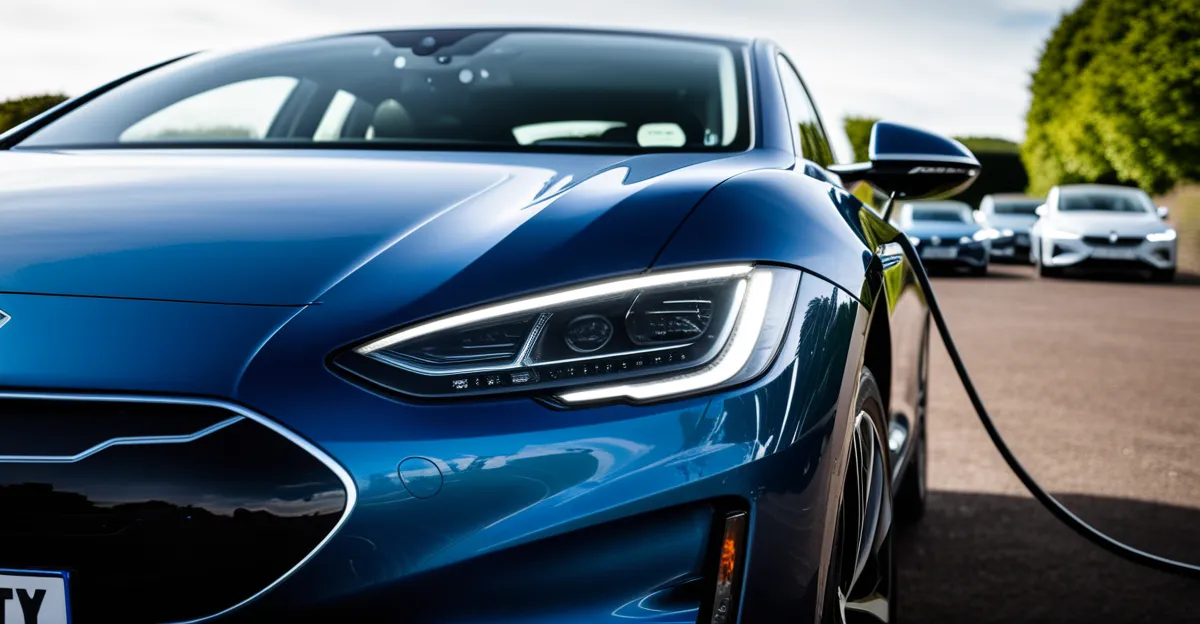UK Automotive Industry’s Current State of Electric Vehicle Readiness
The UK automotive industry is steadily progressing in its electric vehicle readiness, marked by increasing manufacturing capabilities and growing adoption rates. Current EV manufacturing capacity in the UK has expanded significantly over recent years, with several domestic plants now dedicated to producing electric models. This growth is supported by an increasing supply chain maturity that focuses on sourcing critical components like batteries and electric drivetrains.
Infrastructure remains a crucial factor. The UK’s charging network, although improving, shows regional disparities, with urban areas enjoying better coverage than rural zones. The supply chain’s ongoing development includes efforts to localize production of key elements to reduce dependencies and enhance resilience.
Also read : How is the Evolution of Electric Vehicles Reshaping the UK Automotive Industry?
Recent statistics indicate a sharp rise in EV market penetration, with electric vehicles accounting for over 15% of new car registrations nationwide. This figure reflects both evolving consumer preferences and strategic shifts within manufacturers. The UK automotive industry’s current capabilities suggest a promising foundation for accelerating electric vehicle adoption, albeit with challenges in infrastructure and supply chain synchronization still to overcome.
Key Challenges Facing Widespread EV Adoption
The UK automotive industry faces significant hurdles in accelerating electric vehicle adoption despite promising strides in production and consumer interest. One major barrier is the uneven expansion of charging infrastructure. Many rural areas suffer from limited or slow charging options, hindering everyday convenience and discouraging wider adoption. Additionally, grid capacity constraints raise concerns about the ability to support increasing EV loads without upgrades.
Also read : How Will EV Adoption Impact the Future of UK Automotive Manufacturing?
Supply chain challenges also pose critical obstacles. The availability of essential components like lithium-ion batteries and semiconductors remains constrained globally, impacting the UK’s current capabilities to scale EV production efficiently. These supply chain challenges extend to securing raw materials, manufacturing capacity, and specialized skilled labor.
Investment levels, while growing, are still insufficient to meet the rapid pace required for a full transition. Funding gaps in advanced manufacturing technologies and infrastructure upgrades slow down innovation and scalability. Addressing these issues demands coordinated efforts between industry stakeholders and government bodies to ensure sustainable growth in electric vehicle markets. Increasing investment and resolving supply chain bottlenecks are pivotal for overcoming these challenges and enabling smooth electric vehicle adoption across the UK.
Government Policies and Industry Support Mechanisms
Government policy on electric vehicles plays a pivotal role in shaping the UK’s electric vehicle readiness and overall industry trajectory. The UK government has introduced a range of incentives to accelerate electric vehicle adoption, including grants for EV purchases, subsidies for charging infrastructure, and tax benefits. These incentives directly influence consumer demand and support manufacturers’ shifts toward EV production.
The regulatory framework sets clear timelines, such as the ban on new petrol and diesel cars by 2030, providing UK automotive industry players with predictable targets. By establishing these directives, the government encourages industry adaptation and innovation investments.
Public-private initiatives further bolster this transition. Collaborative efforts focus on expanding charging networks and advancing battery technology, addressing critical supply chain gaps. This partnership model aims to synchronize infrastructure with manufacturing and market growth.
Overall, government policies create a supportive environment that is crucial for the current capabilities of the UK automotive sector to meet escalating EV demand. Continued policy evolution and increased funding will be essential to maintain momentum and overcome existing barriers to widespread electric vehicle adoption.
Manufacturer Adaptation and Strategic Responses
The UK automotive industry is intensifying efforts to align with the electric vehicle revolution through adaptive strategies. Leading UK automakers are investing heavily in EV-specific research and development, focusing on battery technology advancements and vehicle design optimized for electrification. These investments reflect an understanding of the crucial role UK automakers play in accelerating electric vehicle readiness.
Workforce reskilling is another strategic priority. Manufacturers are retraining employees to handle EV production complexities, including assembly of electric drivetrains and software integration. This shift better positions the workforce to contribute effectively to growing current capabilities in electric vehicle manufacturing.
Collaboration forms a backbone of industry adaptation. Companies are partnering with tech firms and suppliers to secure components and innovate jointly, mitigating supply chain challenges. Some manufacturers have launched pilot projects to explore new production methods and battery recycling, indicating a commitment to sustainable operations.
These strategic responses highlight a proactive stance by UK automakers, aiming not only to meet existing demand but also to shape future market readiness. The pace and scale of these adaptations will heavily influence the UK’s overall transition to electric vehicles.
Consumer Adoption Rates and Market Trends
Consumer adoption of electric vehicles in the UK is gaining substantial momentum, with recent data showing over 15% of new car registrations are electric. This surge reflects evolving market trends where UK car buyers increasingly prioritize sustainability and long-term cost savings. Understanding consumer attitudes reveals that affordability, range anxiety, and access to charging infrastructure remain key factors influencing purchase decisions.
Cost remains a pivotal barrier; while government incentives help lower upfront prices, residual concerns about battery longevity and resale values persist. Demand signals also show a growing preference for diverse EV models, including SUVs and smaller city cars, as buyers seek options suited to varied lifestyles.
Market forecasts anticipate continuous growth in electric vehicle consumer adoption, driven by expanding model availability and improving infrastructure. However, challenges such as perceived inconvenience and limited rural charging still temper some customers’ readiness. Addressing these issues through targeted incentives and education could further accelerate uptake.
In summary, while the trajectory for EV adoption among UK consumers is promising, ongoing attention to affordability, choice, and infrastructure will be crucial to sustaining positive market trends and meeting broader electric vehicle readiness goals.





